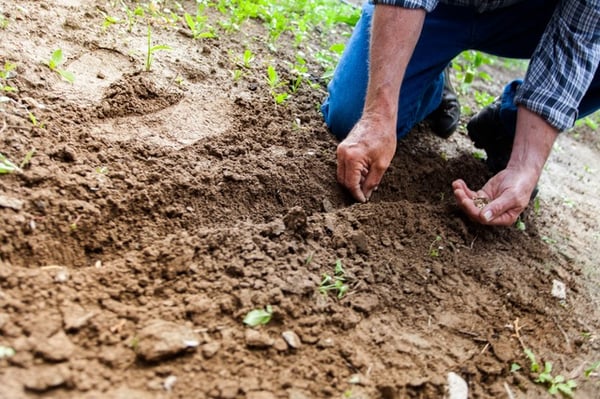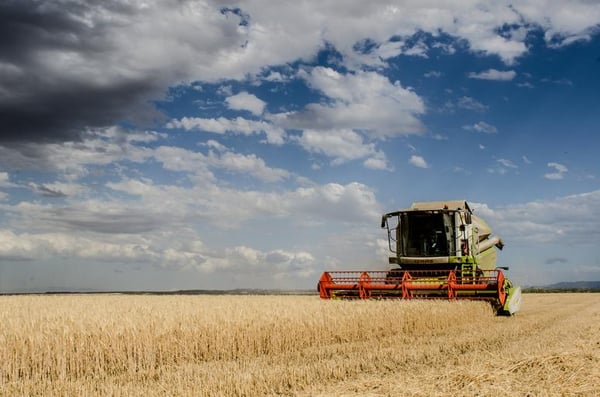

Economic development is a filthy business.
Let me rephrase that…
Economic development SHOULD be a filthy business.
Growing a local economy isn’t something easily done from behind a desk. If you want to help businesses, encourage new development and create more jobs… things are going to have to get messy.
It’s a lot like gardening. If you want to eat well in the summer, you have to roll up your sleeves, clear some acreage and dig deep in the spring.
The biggest different is that economic developers are planting, cultivating and harvesting all year long.

There are three basic ways that economic developers help grow the local economy:
1. Help entrepreneurs start new businesses
2. Help existing business owners grow and expand
3. Help attract outside businesses to the area
Out of these three methods for adding jobs and accelerating the local economy, number 2 (aka business retention and expansion) often gets overshadowed.
Why?
Number 1 is pretty obvious: entrepreneurship is exciting. Launching a brand new business involves taking action and taking risk. Stories of startup success are part of the American Dream. Everyone wants to be the next Steve Jobs or Mark Zuckerberg.
And every economic developer wants credit for helping create the next Steve Jobs or Mark Zuckerberg.
As for number 3? Landing a big deal has always been a big deal. When a city or county scores a new million-square-foot distribution center, 30-story corporate headquarters or billion-dollar downtown development, it makes headlines.
The economic developer is hailed as a hero.
In comparison, business retention and expansion (BR&E) lacks luster. Existing businesses aren’t the “shiny new thing.” A steady flame isn’t as thrilling as a fireball streaking across the sky.
But here’s a word of warning to other localities and economic developers: ignoring BR&E could be a costly mistake.
How costly? Some studies have shown that up to 80% of net new jobs and capital investment in any economy are generated by existing firms. And working with existing customers is 10 times more cost effective than continually cultivating new ones.
It pays to invest time and energy in companies that are already up and running.
I like to think of it as enriching the soil.
Taking care of existing businesses will improve the overall health of our business environment. Strengthening that foundation makes it more likely for startups to succeed (and stay) and makes our area more attractive to companies that are scouting for new locations.
The better the soil, the bigger the harvest.
BR&E is an important component of any economic development strategy, but it takes dedication and a willingness to roll up your sleeves and get your hands dirty. If you want your Business Retention and Expansion efforts to succeed, start by following these three strategies:

Connecting with people is the key to making great things happen.
But building relationships is about more than handshakes and the occasional “How are you doing?” It’s hard work that requires showing up and listening for ways that you can help.
Be consistent and show up often. You can’t just plant a garden and check back once a week. If you want results, you need to work that land every single day.
Get personal. It might be more efficient to make phone calls or fire off emails, but science has proven that people get much more from a face-to-face conversation. Some studies show that as much as 90 percent of communication can be determined by nonverbal cues.
Be adaptable. Some companies need a coach, a consultant or a confidant. Others just want to get the inside scoop on what’s coming down the pike from city hall. Most just want you to know who they are and what they do. Always be prepared to wear a lot of hats.
Collect info and connect the dots. Creating and maintaining relationships with established local business owners is all about building trust and collecting information. The more I meet with people, the more information I can collect. The more information I have, the easier it is for me to recognize opportunities and understand how I can add value.

The big idea behind “retention” is to keep local businesses from “leaving the nest.”
Businesses leave for lots of reasons.
Some companies that start in one place “grow up” and just need more room to spread their roots. Others find a better financial, logistical or market opportunity elsewhere. As an economic developer, I can’t make anybody stay.
But I can make it harder for them to leave by giving them what they need to thrive.
Here are a few ways to keep the grass as green as possible:
Anticipate their needs. Create (and maintain) a business-friendly environment where it’s ridiculously easy for them to operate, expand and evolve. Keep lines of communication open to get a real sense of the frustrations and obstacles that keep owners from focusing on their business. Don’t assume anything.
Eliminate obstacles. Bust up the bureaucracy where you can. Make processes like licensing, planning and permitting as painless as possible. Answer questions quickly.
Cultivate the community. Taxes and incentives matter. Money is important. But decisions to move away are not always about saving a few dollars here and there. Companies want to be part of a community that “gets” and appreciates them. Celebrate their successes. Acknowledge their contributions.

Business owners are on the front lines every day.
They’re busy fighting big and small battles and watching their bottom line. Most don’t have the time or resources to keep up with trends and tools that can help them grow faster.
Part of my role as economic development director is to help them stay focused on building their business. I share insights and information that will give them an advantage. I connect them to new opportunities.
If they're still chopping down wheat with a scythe, I can tell them about combines.
Networking doesn’t come naturally to everybody, but most economic developers are experienced cross-pollinators. We specialize in introductions and invitations and understand that connections are everything.
We should connect every chance we get:
Outside organizations. There is strength in numbers. Memberships in national, state and regional organizations can add value and help expand a company’s reach.
Local professionals. Stay plugged in with professionals who can add value for local businesses. Build relationships with realtors who can keep you in the loop about upcoming properties. Connect with lawyers, accountants and contractors. The wider your network, the easier it becomes to connect and share.
Potential partners. Sometimes there are two companies in the same town (maybe even the same neighborhood) who would work perfectly together. They don’t know each other and they need someone to connect them. Remember the memory game where you had to flip cards over to make a match? It's like that, only in real life... and much more fun.
The Bottom Line: Business retention and expansion can only be successful if local businesses and economic development professionals are willing to work together. Regular communication makes it infinitely easier to connect owners with opportunities. Understanding how to create a (real-world) business-friendly environment is key.
And the most important piece of the partnership is the sharing of resources, connections and insights to ensure that every small business gets an opportunity to grow as big as it wants to be.
These Stories on Economic Development
No Comments Yet
Let us know what you think